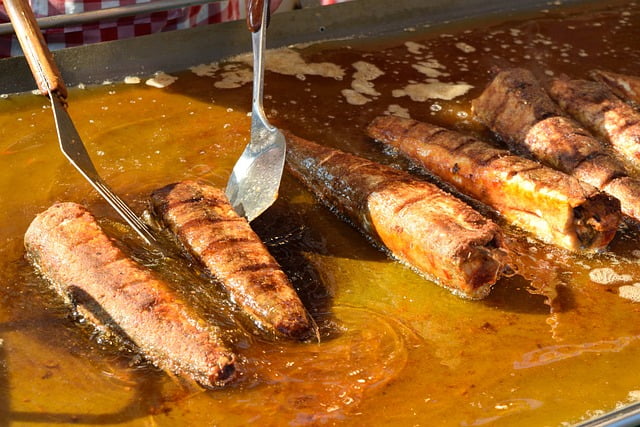Sprouts are young plants that have germinated from seeds and are often eaten raw in salads, sandwiches, and wraps. They are widely considered to be nutritious and beneficial for health, but they also pose some risks of foodborne illnesses. In this article, we will explore the pros and cons of eating raw sprouts and how to enjoy them safely.
Benefits of Eating Raw Sprouts
Sprouts are rich in various nutrients, such as protein, vitamins, minerals, fiber, and antioxidants. The sprouting process increases the availability and digestibility of these nutrients, making sprouts more nutritious than un-sprouted seeds. For example, sprouted beans have higher protein content and lower antinutrient levels than un-sprouted beans1. Sprouted grains, such as quinoa and wheatgrass, also have more protein and less starch than their un-sprouted counterparts.
Sprouts also contain phytochemicals, which are plant compounds that have beneficial effects on health. One of the most studied phytochemicals in sprouts is sulforaphane, which is found in high amounts in broccoli sprouts. Sulforaphane has anti-inflammatory, anti-cancer, and anti-diabetic properties, and may also protect against oxidative stress and neurodegenerative diseases.
In addition, sprouts can add variety, flavor, and texture to your diet. They can be eaten raw or lightly cooked and can be used in salads, sandwiches, wraps, soups, stir-fries, and more. They are also low in calories, fat, and sodium, making them a good choice for weight management and heart health.
Risks of Eating Raw Sprouts
Despite their health benefits, sprouts also carry some risks of food poisoning. This is because sprouts are grown in warm and humid conditions, which are ideal for bacterial growth. Sprouts can be contaminated by bacteria such as Salmonella, E. coli, and Listeria, which can cause diarrhea, vomiting, fever, and sometimes severe complications, such as kidney failure and death.
The risk of contamination is higher for sprouts that are eaten raw, as cooking can kill most of the harmful bacteria. However, even cooked sprouts can be unsafe if they are not handled properly. For example, cross-contamination can occur if raw sprouts come into contact with cooked sprouts or other foods, utensils, or surfaces.
Some people are more vulnerable to the effects of food poisoning than others. These include pregnant women, young children, older adults, and people with weakened immune systems. These groups should avoid eating raw sprouts or be extra careful when consuming them.
How to Eat Sprouts Safely
To reduce the risk of food poisoning from sprouts, you can follow these tips:
- Buy fresh and refrigerated sprouts. Avoid sprouts that look slimy, brown, or wilted.
- Wash your hands before and after handling sprouts.
- Rinse sprouts thoroughly under running water before eating or cooking them.
- Cook sprouts thoroughly, especially if you belong to a high-risk group. You can steam, boil, or sauté sprouts until they are soft and tender.
- Keep raw and cooked sprouts separate. Use different cutting boards, knives, and containers for raw and cooked sprouts. Do not reuse the water that was used to soak or rinse sprouts.
- Store sprouts in the refrigerator and use them within two to three days. Do not eat sprouts that have expired or smell bad.
Conclusion
Sprouts are a healthy snack that can provide many nutrients and phytochemicals. However, they can also be a food safety hazard if they are contaminated by bacteria. To enjoy sprouts safely, you should buy fresh and refrigerated sprouts, wash them well, cook them thoroughly, and store them properly. By following these precautions, you can reap the benefits of sprouts without risking your health.
FAQs
Q: What are sprouts?
A: Sprouts are seeds that have germinated and become very young plants. They are usually eaten raw and are available in a wide range of varieties, such as bean, vegetable, nut, and grain sprouts.
Q: What are the benefits of eating sprouts?
A: Sprouts are rich in various nutrients, such as protein, vitamins, minerals, fiber, and antioxidants. The sprouting process increases the availability and digestibility of these nutrients, making sprouts more nutritious than un-sprouted seeds. Sprouts also contain phytochemicals, which are plant compounds that have beneficial effects on health, such as anti-inflammatory, anti-cancer, and anti-diabetic properties. Sprouts can also add variety, flavor, and texture to your diet.
Q: What are the risks of eating sprouts?
A: Sprouts also carry some risks of food poisoning, as they can be contaminated by bacteria such as Salmonella, E. coli, or Listeria, which can cause diarrhea, vomiting, fever, and sometimes severe complications, such as kidney failure and death. The risk of contamination is higher for sprouts that are eaten raw, as cooking can kill most of the harmful bacteria. Some people are more vulnerable to the effects of food poisoning than others, such as pregnant women, young children, older adults, and people with weakened immune systems. These groups should avoid eating raw sprouts or be extra careful when consuming them.
Q: How can I eat sprouts safely?
A: To reduce the risk of food poisoning from sprouts, you can follow these tips:
- Buy fresh and refrigerated sprouts. Avoid sprouts that look slimy, brown, or wilted.
- Wash your hands before and after handling sprouts.
- Rinse sprouts thoroughly under running water before eating or cooking them.
- Cook sprouts thoroughly, especially if you belong to a high-risk group. You can steam, boil, or sauté sprouts until they are soft and tender.
- Keep raw and cooked sprouts separate. Use different cutting boards, knives, and containers for raw and cooked sprouts. Do not reuse the water that was used to soak or rinse sprouts.
- Store sprouts in the refrigerator and use them within two to three days. Do not eat sprouts that have expired or smell bad.
Q: Where can I buy or grow sprouts?
A: You can find sprouts in most grocery stores and farmers’ markets, or you can grow your own at home. If you choose to grow your own sprouts, make sure you use clean water and equipment, and follow the instructions for each type of seed. You can also buy sprouting kits or jars that make the process easier and safer. However, be aware that homegrown sprouts are not guaranteed to be free of bacteria, and may still pose a risk of food poisoning.






